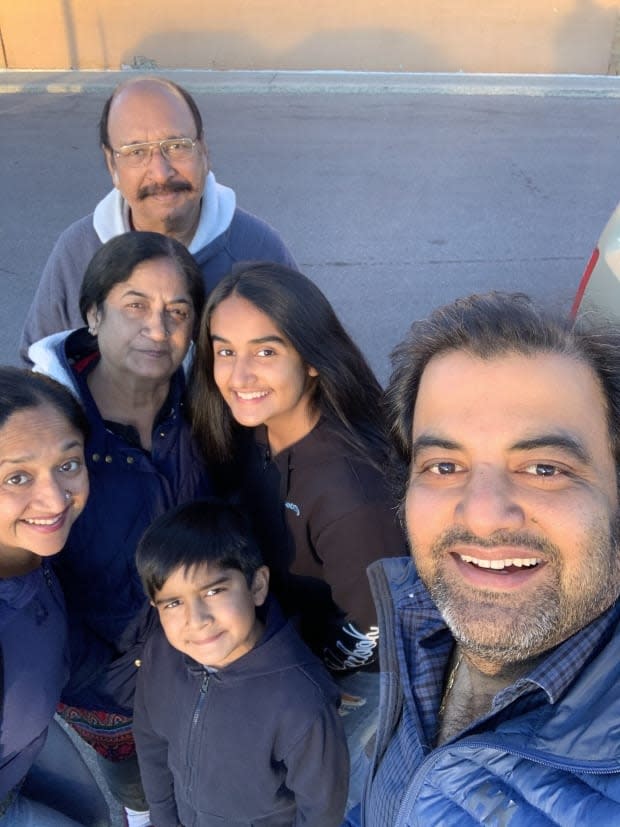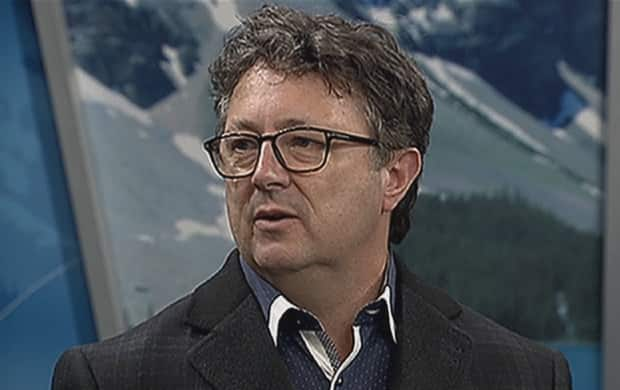Family may face nearly $100K health-care bill after permanent residency delayed

Last year, Sonika Anand decided it was time to bring her parents, Mast Ram Atter and Kamla Atter, to Canada.
They were growing old, and Anand wanted them to be closer to her and their grandchildren.
While living in India's northern state of Uttar Pradesh, Mast Ram and Kamla were approved for their permanent residency in July 2019, and were told they had to land in Canada by June 26, 2020.
But like so many others in past months, the family's dreams were sidelined — and a subsequent health crisis quickly put in sharp focus the human impact of administrative delays during the pandemic.
"My wife has been crying for the last three days," said Rahul Anand, Sonika's husband. "You can imagine us, a family, we don't know where we will land. We will probably end up selling our house."
Immigration, Refugees and Citizenship Canada (IRCC) shut down immigration tests and citizenship ceremonies in March, offering some virtual services and limited in-person services where possible.
In an attempt to arrive before their deadline, tickets were booked for the Atters in May. The flight was cancelled, so the family tried again later that month.
That flight, too, was cancelled, as was another a month later. But reading on the IRCC website that travel would still be permitted should documents have been issued before March 18, the family proceeded with booking a flight for Aug. 21, after their deadline.
"We are requesting that when we land in Canada our [permanent residency] stamping can be completed," Kamla wrote in an email on Aug. 11. "Please let us know if you need any information from our end and we can provide you all evidence of cancelled trips and current bookings."

When the Atters landed, they were told they would not be able to enter the country, as their permanent residency had expired.
With no direction from the IRCC, border services issued the Atters a visitor visa, allowing them to come into Canada for six months.
"Great. So we are all happy that they're finally here with us, and we'll see what we need to do," Rahul said.
Once the Atters were settled, the family began reaching out to the IRCC to try and determine next steps to finalize the permanent residency, receiving no response.
"At this time we are requesting you to issue us a new [Confirmation of Permanent Residence] so we can complete our [permanent residency] while we are here in Calgary, Alberta," Kamla wrote to the IRCC on Aug. 25. "Please let us know if you need any information from our end."
On Sept. 15, the family received an email from the IRCC, asking if Mast Ram and Kamla would be available to travel to Canada in the next 60 days.
"Me and my husband are already here in Calgary, Alberta with our daughter," Kamla wrote back the same day. "We are waiting for the extension of our COPR so we can get our PR stamping done."
Health emergency
In early October, Kamla wasn't feeling well. The 67-year-old was dizzy, tired and had shortness of breath.
The family took her for a check-up to discover her blood pressure was over 200 and her pulse rate was very low. Her doctor told the family to take her to the hospital immediately, fearing she might collapse.
"[At the hospital], the cardiologist comes in and says, 'You have to put a pacemaker for her, otherwise she could collapse and she could die right now,'" Rahul said. "And I go, 'OK, but you do realize, like she is technically a visitor, but technically she has a permanent residency.'"
Despite her status, Rahul still suggested to the family that they purchase travel insurance in the interim period.
Even with travel insurance, Rahul said hospital staff told the family that between room prices and the price of the pacemaker, they could still be on the hook for around $100,000 or more.
"And now we're all panicking. Literally we're like, how will we even see a penny out of this?" Rahul said. "And then [a social worker] says, well, you have another option. They can go back to their [country] and get this done … but with a pulse that low, I don't even know if she can travel back. Her pulse could stop anytime, her pulse is like 30.
"Anyways, [the] heart surgeon comes in and goes like, 'We need the surgery right now, otherwise you're not making this.'"
On the hook
Anand said the family has received one bill for more than $20,000 so far.
"We have no idea how much did the surgery cost? How much do we have to pay for ambulance? How much do we have to pay for the pacemaker?" Anand said.
After CBC News reached out to the IRCC, Kamla's permanent residency was approved as of Oct. 9 — four days after her surgery.
For that reason, the family is still on the hook for Kamla's medical bills.
WATCH | Sonika Anand talks about what she hopes happens next:
In a statement, the IRCC wrote the start date of an individual's permanent residency status is determined once they are in Canada and undergo a final assessment.
"We are working through request to extend COPR as quickly as possible. COVID-19 has had an effect on businesses, operations and travel around the world," the IRCC said in a statement.
Province can adjust charges
In a statement, Alberta Health Minister Tyler Shandro's press secretary Steve Buick said the provincial insurance plan follows the definition of "resident" in the Canada Health Act.
"We contacted Immigration, Refugees and Citizenship Canada (IRCC) on behalf of this family. Our understanding is that they need to work with IRCC directly to resolve their status," Buick wrote.
Buick said if a patient's legal status changes, charges for non-insured care can be adjusted and cancelled, including in cases where patients without proof of legal status provide it later.
"We always err on the side of inclusion of any resident with valid status," Buick wrote. "We wish this family the best, especially for the patient who we understand received urgent cardiac care."

Calgary immigration lawyer Michael Greene said the family's situation was typical of the disruption of the COVID-19 pandemic and its impact on governments and processes.
"It seems quite sad that this woman should have been a permanent resident. But for COVID, she would have been a permanent resident, would have been completely covered for everything," he said. "I'm hoping that cooler heads will prevail, and they'll come to a remedy."
As for the family, Rahul said he doesn't know how the bill will end up being paid — and is frustrated that it could have been avoided should the IRCC have responded to the family's communications.
"You can imagine the stress … and if you tell us my mistake, I'll accept it. But we did everything that you asked us to do," Rahul said.
"I'm not a guy who starts escalating things for no reason. No, no. It's just that this is beyond me now. Beyond my capacity."

 Yahoo Movies
Yahoo Movies 
